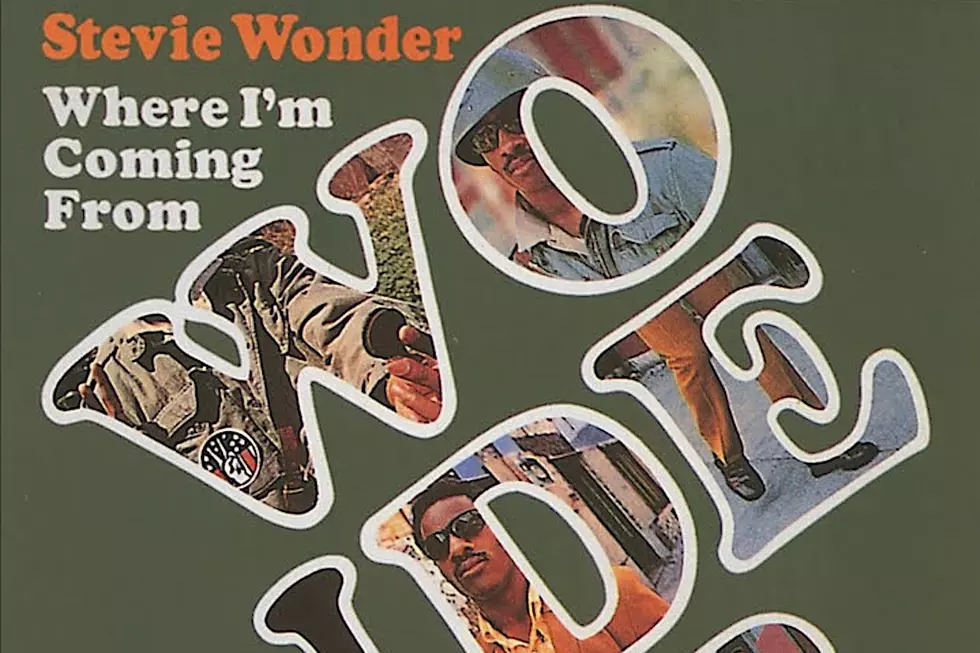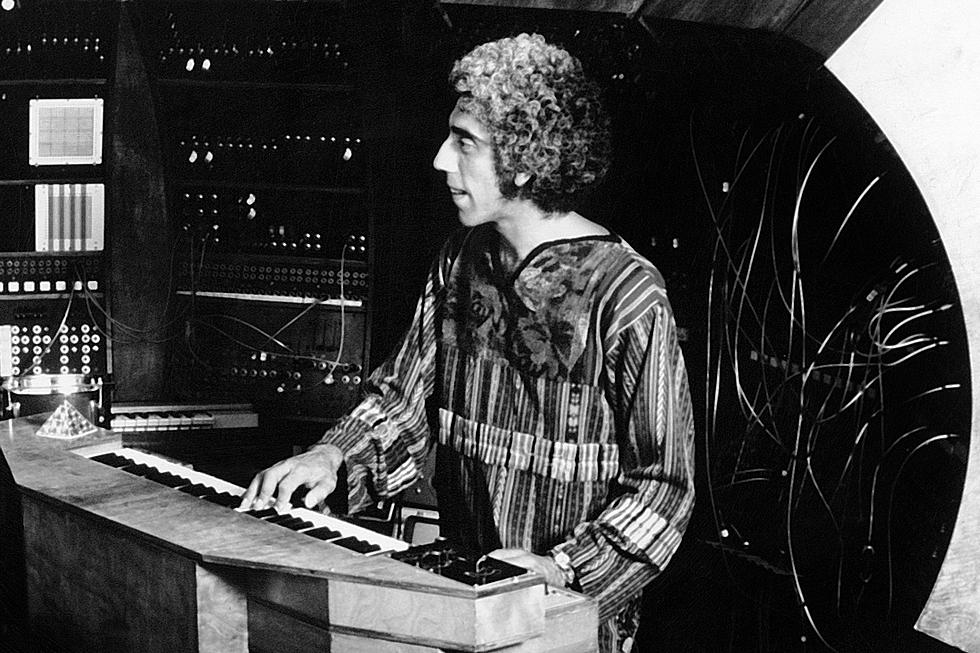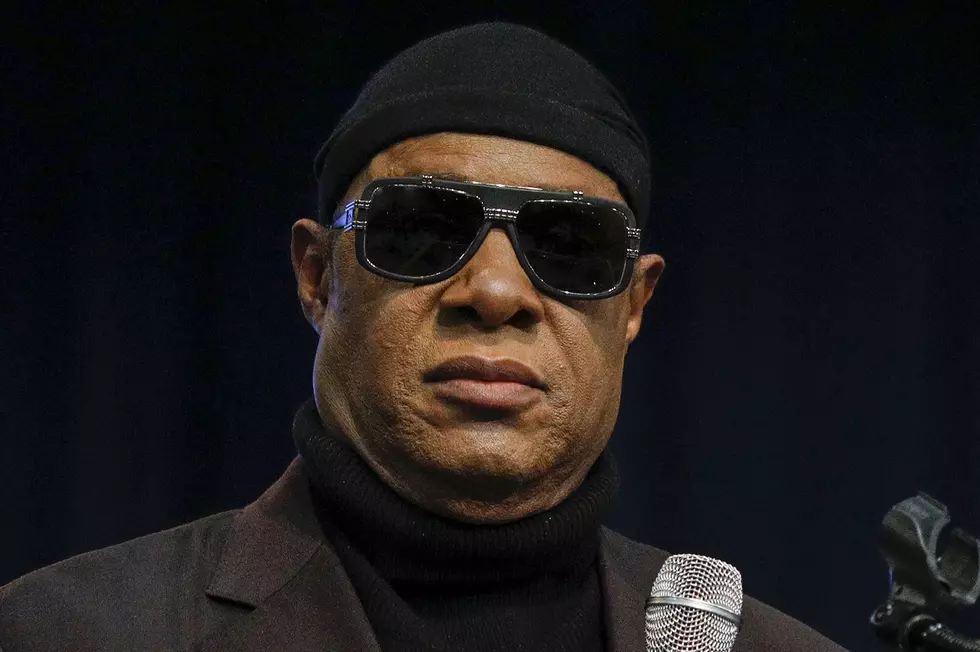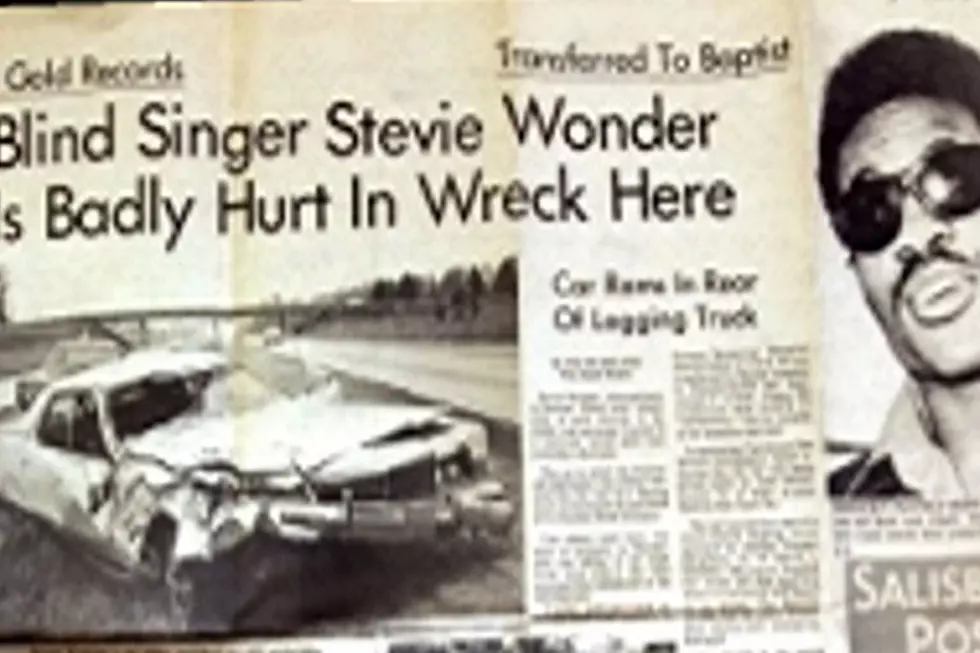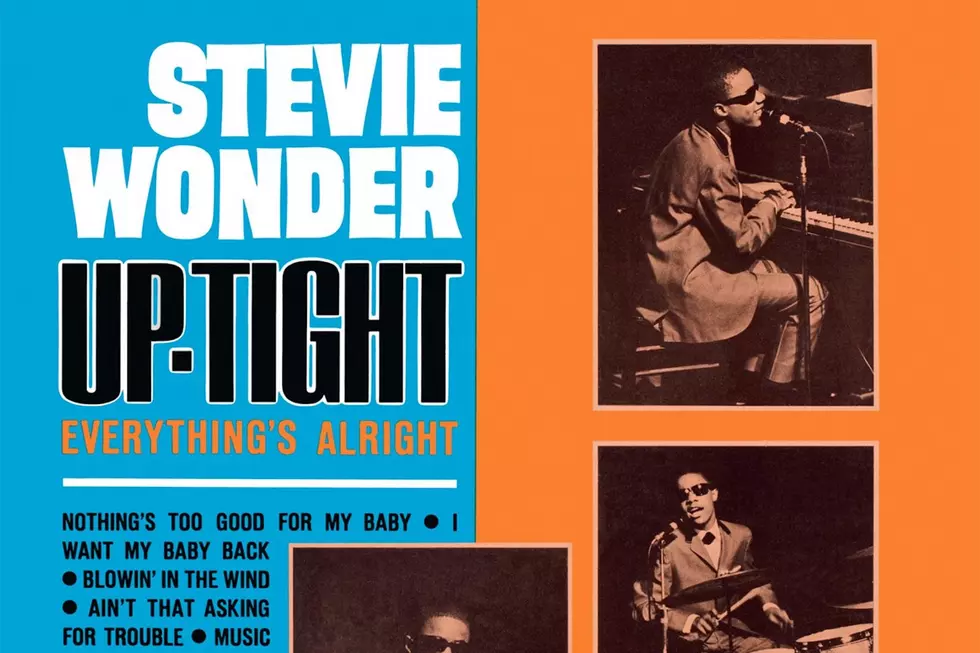
55 Years Ago: Stevie Wonder Finally Finds His Voice on ‘Up-Tight’
Stevie Wonder took full creative control on 1972's Music of My Mind, after more broadly asserting himself on 1971's Where I'm Coming From. The first stirrings of this independent streak, however, trace back several years before to Up-Tight.
He'd been in the midst of a dry spell on the charts, after becoming the youngest ever for reach No. 1 with Recorded Live: The 12 Year Old Genius in 1963. By the time this appropriately named LP arrived on May 4, 1966, he was neither 12 nor the same widely acknowledged genius anymore.
To a degree, this was a relief. He never liked all of that prodigy-related praise, anyway. "The genius in me is God," Wonder later told The Guardian. "It's the God in me coming out."
Still, Wonder's bubbly vocal style was starting to deepen, and the Motown-approved song selections weren't connecting. There was talk of canceling his recording contract.
Wonder would save himself with the title track Up-Tight: A song he cowrote, the first original to be released as a single, turned his fortunes. Without it, Wonder's career might have been permanently derailed. More than that, we might never have had a run of Stevie Wonder albums in the '70s the redefined popular music.
Sylvia Moy, a songwriter assigned to Up-Tight by Motown, felt like all the young Wonder needed was a nudge toward finding his own individuality. She was right.
"His voice had changed, and he just wasn't selling for a period," Moy later told the Detroit News. "But I just believed in him. I knew it was possible [the label] might let him go. I was begging: 'Please give him to me.' That's when I was finally told, 'Well, if you can come up with a hit on him, we'll keep him.'"
Listen Stevie Wonder's 'Uptight (Everything's Alright)'
At first, Moy didn't think she heard a surefire hit from Wonder's backlog of embryonic original ideas. Then he started humming a rhythm signature, and Moy lit upon it. There was, at this point, only one accompanying line – but it was a rocket ride of a line.
"I had a bag of songs at the time, but I told Stevie, 'I want you to play everything. All of the little ditties you have, play them for me,'" Moy said in 2004's Higher Ground. "He went through everything. He said, 'That's all I have,' and I thought I was going to have to start working from my bag. I asked him, 'Are you sure you don't have anything else?' He said, 'No, not really, although I have got this one thing.' He started singing and playing, 'Everything is alright, uptight,' and that was as much as he had. I said, 'That's it. Let's work with that.'"
"Uptight (Everything's Alright)" came together so quickly, however, that there was no time to transcribe the lyrics into Braille for Wonder. Moy had to sing the words to him through his earphones. "I would stay a line ahead of him," she told the Today show in 2014, "and we didn't miss a beat."
They were right to seize upon this idea, as "Uptight (Everything's Alright)" raced to No. 3 on the Billboard Hot 100 while topping the R&B chart. It was Wonder's first trip back to the Top 5 since "Fingertips – Part 2," also in 1963. Since then, his best showing had been 1965's "Hey Harmonica Man," which stalled at No. 29.
Wonder and Moy got to work, cowriting "Ain't That Asking for Trouble"; Moy also cowrote the Top 10 R&B hit "With a Child's Heart" and the Top 20 pop hit "Nothing's Too Good for My Baby." Up-Tight was rounded out by two earlier recordings – "Contract on Love," a 1962 single and the previously unissued 1964 track "Pretty Little Angel" – and a signature update of "Blowin' in the Wind."
Covering Bob Dylan was key to Wonder's development too, and not just as another potential pop hit. He felt strongly about including this anti-war song, even if it didn't fit into the established Motown formula. Wonder was already thinking bigger thoughts about more important things, and Dylan's words helped him bridge the two worlds.
"I never felt that I strictly embodied the Motown sound," Wonder said in 2010's Stevie Wonder: Musician. "I mean there weren't too many people around there doing white-folk stuff like 'Blowin' in the Wind,' or 'Mr. Tambourine Man' like I was."
Just five of the 12 songs on Up-Tight were cowritten by Wonder, but he'd begun establishing his bona fides as both a composer and a maturing voice. His instincts were correct about the Dylan song, too: Wonder's take reached the Top 10 on both the pop and R&B charts.
Listen Stevie Wonder's Cover of 'Blowin' in the Wind'
There was a long fight ahead, including some less-than-flattering comments from labelmates about his change in creative direction. Smokey Robinson, for instance, was memorably unimpressed after Wonder appeared as a musical guest on Flip Wilson's variety show.
"I got a call from Smokey and he says: 'I didn't like your choice of material. I think it's really ridiculous,'" Wonder told The Guardian. "I said: 'I don't give a uh what you think or what anyone thinks!' That was my growing-up moment at Motown."
Moy continued to work with Wonder until his muse took centerstage for good, cocreating 1967's "I Was Made to Love Her" and 1969's "My Cherie Amour." But her influence remained.
"Sylvia Moy has made it possible to enrich my world of songs with some of the greatest lyrics," Wonder told Rolling Stone when Moy died in 2017. "But not only that, through her participation and our cowriting those songs, she helped me become a far better writer of lyrics."
Music of My Mind was followed by further audience-broadening opening dates with the Rolling Stones – highlighted by an eruptive return to "Uptight (Everything's Alright)." He performed it each night as an encore, combining this joy-packed, career-turning song with a portion of "(I Can't Get No) Satisfaction," the Stones' hit from a year before. Mick Jagger even joined him on occasion.
"Music is like a religion to me, you know, and the more sharing that takes place between the musicians and the audience the more spiritual the music becomes," Wonder told The New York Times back then. "I like to have a lot of time to stretch out — to get that spirit moving — and we only get to play for 30 or 40 minutes, but we've still managed to make a lot of people have soulful experiences."
There would be more, many many more. Meanwhile, a clear message emerged from all of this: Stevie Wonder was no longer simply an occasional crossover act. He belonged to the world now.
Ranking Every Stevie Wonder Album
More From Kool 107.9
